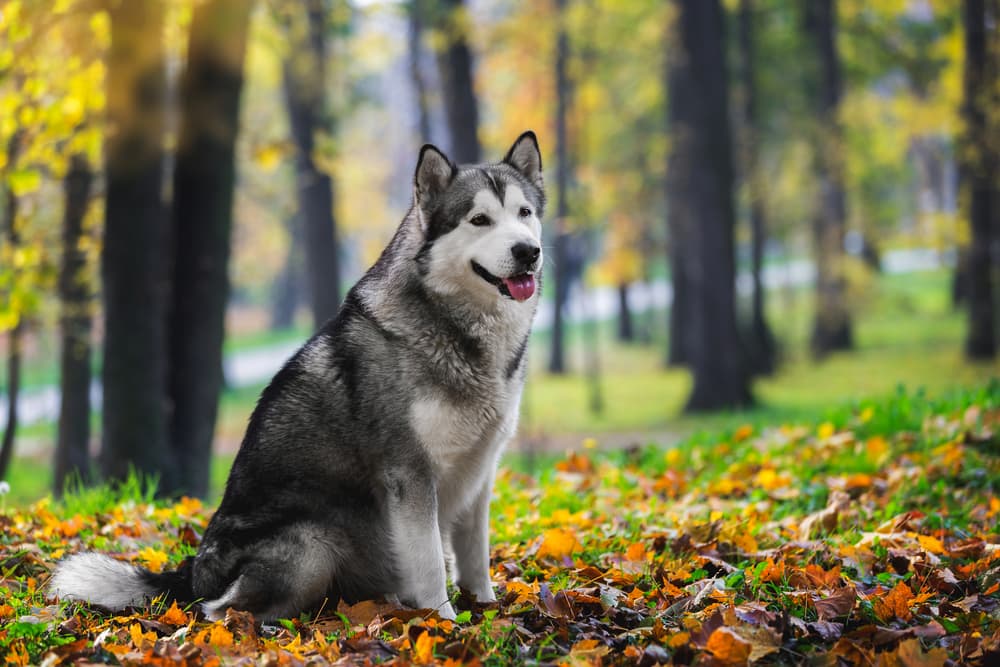The Alaskan Malamute is a sight to behold. These magnificent canines are built for the harsh Arctic terrain, with a sturdy and well-proportioned frame. Their dense double coat, which comes in various shades of grey, black, sable, and red, is designed to keep them toasty in subzero temperatures. Their expressive almond-shaped eyes exude intelligence and warmth, adding a touch of mystique to their gaze. Topped off with erect, wolf-like ears and a plume-like tail that waves like a banner of pride, the Alaskan Malamute is a true masterpiece of nature’s design.
The Alaskan Malamute is as distinct in character as it is in appearance. These friendly giants are renowned for their loving and loyal nature. They form deep bonds with their human companions and often see themselves as part of the family. However, their independent streak can sometimes lead to a touch of stubbornness, so patience is key when training them. Alaskan Malamutes may not be known for their barking, but they are talkative. These dogs will howl in low notes and make “woo woo” noises that sound like they are trying to communicate with you conversationally. Over time, they may do this more or less depending on the reactions they get from it. Or, they may only do it when they want food, affection, or because they are bored.
This breed should be supervised around unfamiliar small animals, as they have a strong prey instinct. That’s why a secure fence is essential. Regular grooming is necessary to maintain their thick coat, and they’ll shed quite a bit during seasonal changes, so get ready for some fur maintenance.
Vigorous exercise is a must. A large enclosed yard is vital but Alaskan Malamutes also love to hike, run, and swim with their owners while agility and obedience classes are right up their street. They also tend to behave like overgrown puppies even in later life. If bored, they can quickly cause a lot of damage to your home. And, don’t expect your Malamute to protect your property. They can look fierce but, in reality, everybody is a potential friend.


















